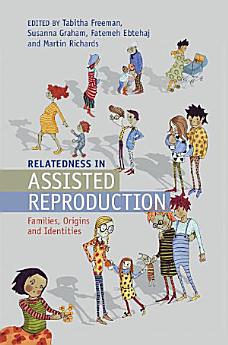Relatedness in Assisted Reproduction: Families, Origins and Identities
Tabitha Freeman · Susanna Graham · Fatemeh Ebtehaj · Martin Richards
Aug 2014 · Cambridge University Press
Ebook
333
Pages
reportRatings and reviews aren’t verified Learn More
About this ebook
Assisted reproduction challenges and reinforces traditional understandings of family, kinship and identity. Sperm, egg and embryo donation and surrogacy raise questions about relatedness for parents, children and others involved in creating and raising a child. How socially, morally or psychologically significant is a genetic link between a donor-conceived child and their donor? What should children born through assisted reproduction be told about their origins? Does it matter if a parent is genetically unrelated to their child? How do experiences differ for men and women using collaborative reproduction in heterosexual or same-sex couples, single parent families or co-parenting arrangements? What impact does the wider cultural, socio-legal and regulatory context have? In this multidisciplinary book, an international team of academics and clinicians bring together new empirical research and social science, legal and bioethical perspectives to explore the key issue of relatedness in assisted reproduction.
About the author
Tabitha Freeman is a Research Associate at the Centre for Family Research, University of Cambridge.
Susanna Graham is a Research Associate at the Centre for Family Research, University of Cambridge.
Fatemeh Ebtehaj is an Associate Member of the Centre for Family Research, University of Cambridge.
Martin Richards is Emeritus Professor of Family Research at the University of Cambridge, Centre for Family Research, which he founded and directed until 2005.
Rate this ebook
Tell us what you think.
Reading information
Smartphones and tablets
Install the Google Play Books app for Android and iPad/iPhone. It syncs automatically with your account and allows you to read online or offline wherever you are.
Laptops and computers
You can listen to audiobooks purchased on Google Play using your computer's web browser.
eReaders and other devices
To read on e-ink devices like Kobo eReaders, you'll need to download a file and transfer it to your device. Follow the detailed Help Center instructions to transfer the files to supported eReaders.








